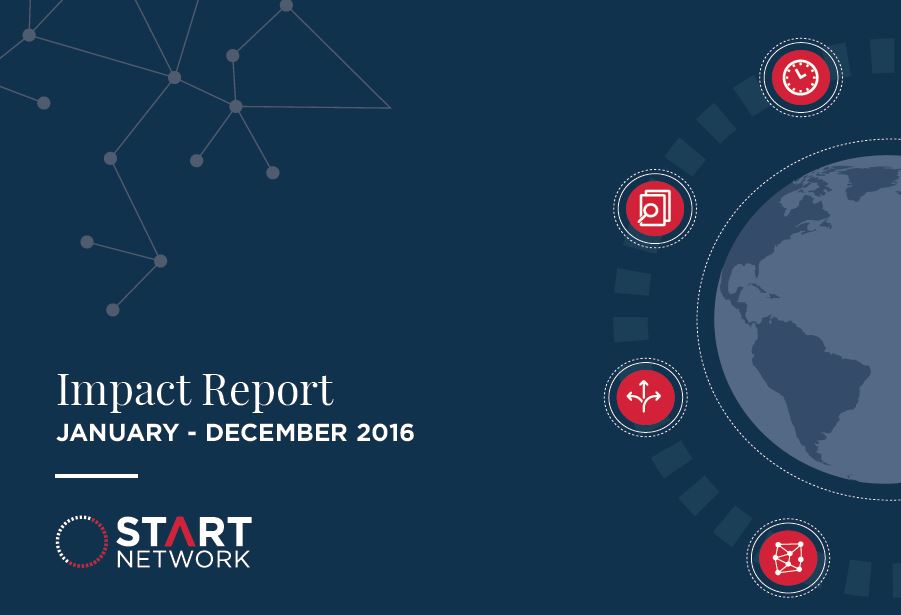Start Network has published a ground-breaking first report into the impact of its efforts to change the humanitarian system.
The report is the first in the humanitarian sector to showcase what can be accomplished through system-change initiatives. It measures a range of indicators from the 391 training and capacity building exercises last year – many involving people close to communities affected by crisis - to the 80 collaborative agreements arrived at with external agencies.
It also estimates that through two of its widest-ranging programmes, Start Network reached 11.8 million people in need of humanitarian aid during 2016. Its most important findings on humanitarian system change are that in the same period Start Network also achieved:
- Nine changes in different governments’ humanitarian policy and practice
- 29 changes in in-country coordination mechanisms
- 16 changes in the policies and practices of aid donors and international NGOs
- 70 such changes involving national NGOs and their partners.
The report includes 13 individual case studies of how systemic changes have led to good quality humanitarian responses, and sets out Start Network’s newly developed theory of change, from which many of the indicators are derived.
Sean Lowrie, director of the Start Network, said:
“Our aim is to change the system but we have no funding for that specific purpose – instead we are attempting to do that through the humanitarian programmes that we run.
“It’s rare that organisations are willing to put all their evidence in the public domain about the validity of what they do. Earlier this year we launched a web portal where anyone can see what the Start Fund is accomplishing. Now we are being completely open about how much change we believe we are achieving.
“Are we making a difference? We believe we are, and for the first time we are publishing evidence that supports this, while being honest and transparent about what we do not yet know.”
The Start Network, 42 international humanitarian responders, is committed to delivering lasting change for communities affected by crisis, partly through building trust and collaboration within its network.
Since its inception, it has brokered relationships between member agencies, their partners and other stakeholders, including academics and the private sector, to bring about behaviour change within and between individual organisations.
Deepti Sastry, Start Network’s head of evidence, said:
“These are critical if we are to deliver lasting change. Our change model is built primarily on the need to shift behaviours and relationships, and this influences how we understand and measure impact.
“All our work is directed towards bringing humanitarian thinking and action closer to communities. We believe the Start Network itself can change, and is already changing. In the longer term we hope that this will also influence wider change within the whole humanitarian system.
“Over the past year our members, through collaboration, have contributed to innovative systems for emergency preparedness and response, and have provided examples of localisation in practice.
“This is our first attempt to distil what we have learnt about system change and what we have accomplished, and we hope to build on it with more such reports in future years.” www.startnetwork.org

